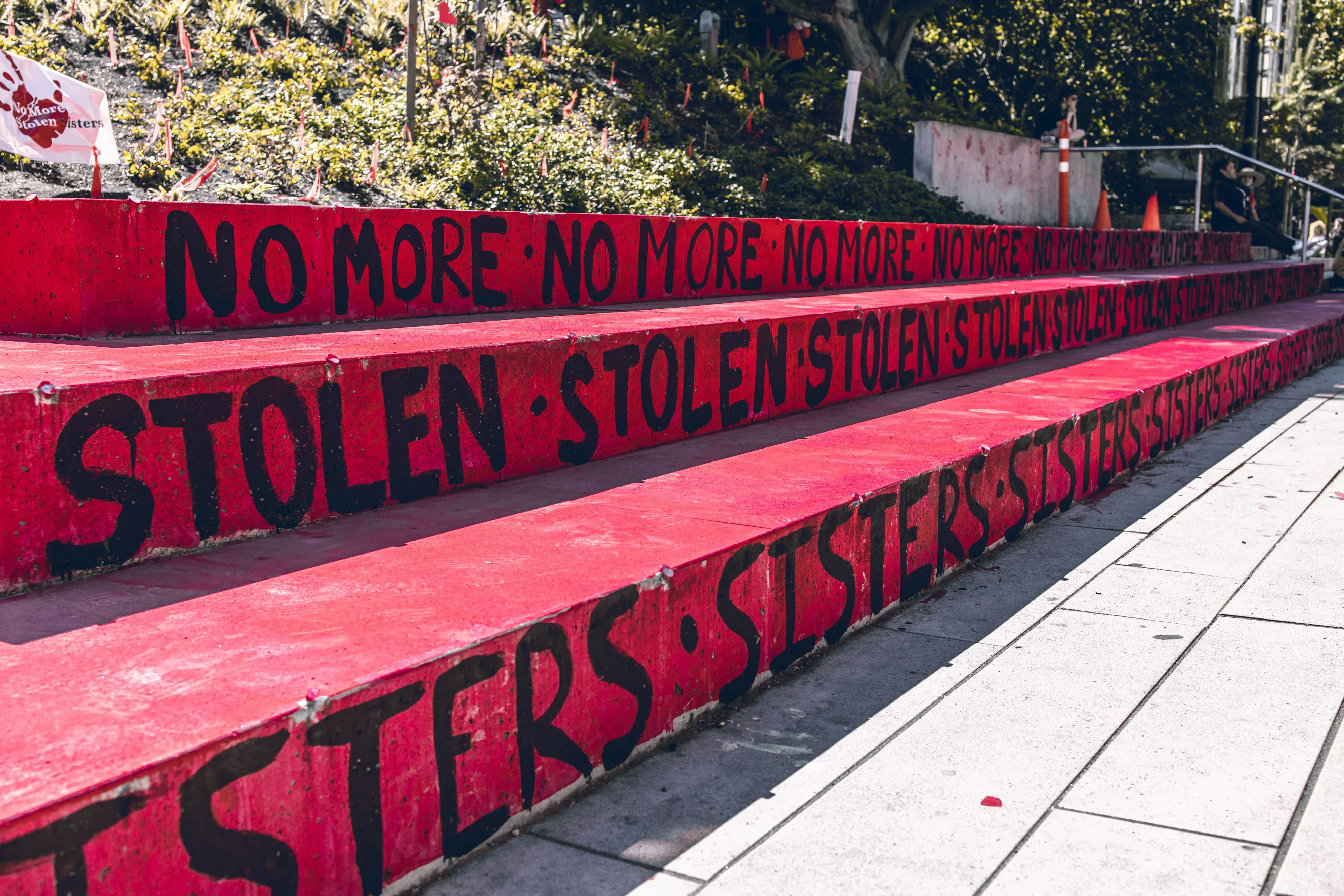
Vancouver, Canada - July 1, 2022: A sign with text "No more stolen sisters" on the Robson Square. Memorial to honour Missing and Murdered Indigenous Women in US and Canada
by Mike Moen
PIERRE, S.D. (Prairie News Service) – January is National Human Trafficking Prevention Month. In South Dakota, the push to secure justice for Missing and Murdered Indigenous Women remains a priority, but some call for more resources.
This crisis has garnered more attention at the national level in recent years, including the 2023 launch of an outreach program led by federal authorities.
South Dakota is a host district for one of the handful of U.S. attorneys assigned to this effort.
While that extra leadership might be helpful, Tanya Grassel-Kreitlow – a coordinator with the South Dakota Network Against Family Violence and Sexual Assault – said there still isn’t enough funding to accelerate meaningful progress.
“We are desperate for funding,” said Grassel-Kreitlow, “and without funding, we are not able to provide advocacy to work with the families of the missing, and to work with the potential victims – who we’ve identified through a lot of factors who have the potential to become missing.”
She spoke during a forum last week hosted by the South Dakota Humanities Council. Panel members also said agencies still don’t share enough intelligence to prevent crimes.
Funding came up during a Congressional hearing last fall, and a key lawmaker pledged a bigger level of support moving forward.
But it’s unclear what that will look like when budget negotiations resume in the spring.
Lily Mendoza is a 2024 Bush Fellow and is the founder of the Red Ribbon Skirt Society out of Rapid City.
She said federal officials have improved their listening efforts when grassroots groups speak out on this issue.
And the Society reports good relationships with local law enforcement – but Mendoza said her team still has to fill in gaps to ensure accountability.
“You know, ‘I got a call from a parent. They’re concerned about their child. Can you check into this?” said Mendoza. “So, those systems that the Not Invisible Act is supposed to be putting in place, the grassroots organizations are taking that on.”
Mendoza said she does applaud a specialized federal unit, that launched in 2021, that can more freely navigate the country to help look into these cases.
According to federal data, 40% of all victims of sex trafficking are identified as American Indian and Alaska Native women.




Comments